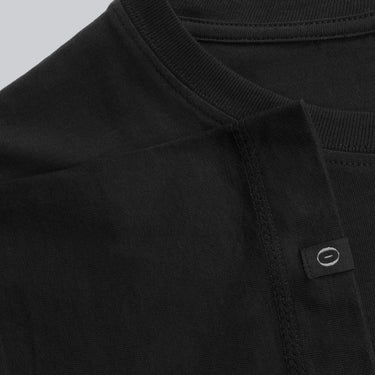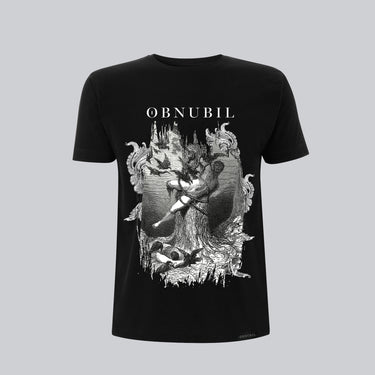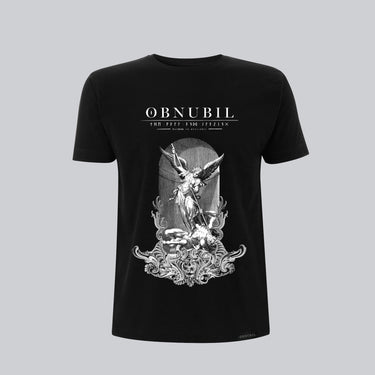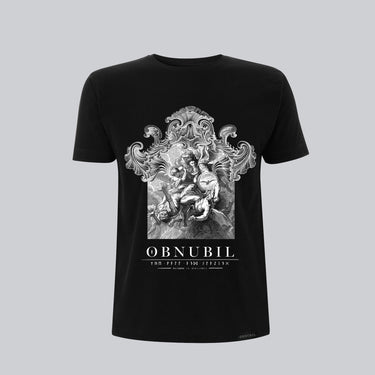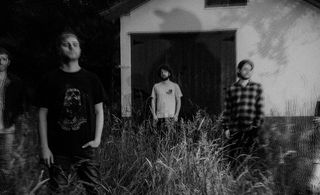
From the Mountains of Asturias to the Outer Reaches of Sound. Emerging from the lush, mist-covered landscapes of Asturias, Honara is a collective that defies easy categorization. Blending elements of folk, hardcore, classical music, stoner, and progressive metal, their sound is as wild and layered as the terrain they call home. Honara doesn't just try to write songs—they craft immersive, emotional journeys where the ferocity of post-metal collides with almost sacred atmospheres. With their debut full-length “Resemblance” already stirring waves in the underground, Honara shows that intensity doesn't always mean volume—and that true heaviness often comes from honesty, contrast, and conviction.

INTERVIEW
OBNUBIL: Hey guys! First of all, thanks for reaching out and showing me your music! Honara is a brand-new name in the metal scene. Can you introduce yourselves to the world? Who are the members of Honara, and how did this project come to life? Every band has an origin story. What was the spark that led to the creation of Honara? Was there a specific moment or idea that made you realize this band needed to exist?
Honara: Hi Jaqueline! Thanks for inviting us and giving us the opportunity to share our project on this platform. Honara is a band from Asturias (Spain) formed by Antonio Alcaide (bass and vocals), Guillermo Villán (drums), Raúl Fernández (synths and keyboards), Moisés Fernández (guitar), Carmen García (vocals), and Robert Lewis (guitar). It’s a collective shaped by diverse influences, ranging from folk, stoner, and progressive rock to classical music. In Honara, all these styles converge to form a post-metal project deeply influenced by progressive metal.
The origins of Honara go back to Nómada, a stoner band in which Antonio and Guillermo played. As Nómada evolved, influences from bands like Isis, Cult of Luna, and The Ocean started to gain importance and led to the creation of a parallel project to explore artistic ideas that didn’t quite fit into Nómada. Along with those bands, Karnivool, Intronaut, Mastodon, and Tool were key in shaping Honara’s sound.
OBNUBIL: Your band name, “Honara,” carries a distinct and powerful sound. What is the meaning behind it, and how does it reflect your identity as a band?
Honara: The name “Honara” emerged spontaneously at the beginning of the project while we were still working on the first riffs. We knew we wanted a name that would evoke something atmospheric and ethereal, and that would be flexible enough to encompass the variety of emotions and dynamic shifts we intended to express in our songs. The band name is, in itself, an empty concept that allows us to fill it with what really matters to us: the music. That’s why, initially, “Honara” was just one option among others, but as the first songs developed, it started to make sense and we felt a connection with it.
OBNUBIL: I guess that every member of Honara brings a unique musical background to the table. Can you share your individual journeys in music? What bands or projects were you involved in before forming Honara? Given the diverse influences in your sound, from folk to hardcore to stoner metal and classical music, how did your past musical experiences shape the way you approach songwriting in Honara?
Honara: That’s a great question, and it’s always nice to look back at where we come from! Everyone in Honara developed a love for music and started playing instruments in their teens, or even earlier. Focusing on past experiences, each member followed their own musical path, often crossing paths with other members of Honara. For example, Guillermo played in the alternative metal band Pleyskunk and in Nómada, a progressive stoner project with Antonio. Besides Nómada, Antonio was also part of the folk fusion band Alquimia with Raúl. Moisés, on the other hand, played with the Asturian hardcore band Jeremías el Babuino.
Naturally, all of these experiences shape how you understand what it means to be in a band, how you approach songwriting, and what you aim to express both in the studio and on stage.
OBNUBIL: As your first full-length album, “Resemblance” marks a major milestone for Honara. What challenges did you face during its creation, and what lessons did you learn in the process? Is there a specific song on the album that holds special significance for the band? If so, what makes it stand out, and what emotions or stories does it convey?
Honara: We’re really happy to have finally released the album—we were eager to share it with the world, and we’re really proud of the result.
Resemblance is a project that’s been slow-cooked with a lot of care, paying attention to every detail in order to create a coherent and solid experience—how the songs develop and how they connect with each other.
One common trait in the underground scene is self-management. Producing a project like Resemblance requires a solid work structure to get results in every phase: songwriting, pre-production, recording, production, and editing. Each step comes with its own challenges and learning curves.
With the exception of the drums, we recorded everything else—every instrument and layer—in our home studio. That meant learning how to organize recordings, use the software, and edit the tracks.
Another major challenge was carving out space for the vocals amidst so many instrumental layers and making sure every element had its own moment to shine.
Each of us has a different song on the album that feels special—either because we connect with it more, enjoy performing it live, or resonate with its lyrics.
OBNUBIL: The title “Resemblance” suggests themes of identity, reflection, or transformation. What is the meaning behind this name, and how does it connect to the music and lyrics? As this is your first album, what do you hope listeners take away from it? Is there a particular feeling, message, or experience you want to leave them with?
Honara: The title “Resemblance” came at the very end of the process, once we had the final master. The concept ties into several aspects of the album. Musically, it reflects how the album was composed, how our influences came to life in the songs, and how those influences helped us arrive at a sound we feel reflected and identified in as a band.
It also connects with the introspective side of songwriting—facing a blank page forces you out of your comfort zone and into a self-reflective process where you start shaping your own creative path.
We believe the themes of the songs touch on universal realities—like the impact of climate change, the breakdown of social relationships, or being citizens in a chaotic world. Listeners may find reflections of themselves in these themes. We invite everyone to join us on this journey.
OBNUBIL: Your music feels like an epic journey through ancient myths and modern emotions. Given the convergence of folk, hardcore, stoner, and classical elements in your sound, if Honara had to be represented by a legendary Asturian creature, which one would it be? The storm-calling Nuberu, the serpentine Cuélebre, or an entirely new entity forged from your collective influences?
Honara: We really appreciate that you see our music as a journey—because that’s exactly how the albums that inspired us felt. Our songs aim to move through different atmospheres, from stormy aggression to peaceful introspection.
With that in mind, if Honara were to be represented by a mythological Asturian entity, it would probably be the Nuberu, the one who controls the weather. Just as Nuberu plays with the elements, our music seeks to create a wide range of immersive environments.
OBNUBIL: If you could travel back in time and perform at any historical event in Asturias, which moment would it be? Would you unleash your music amidst the chaos of the Reconquista battles, provide an atmospheric set for a medieval gathering deep in the forests, or perhaps even bring your progressive metal sound to a mythological feast of ancient gods?
Honara: Asturias is full of history and breathtaking landscapes. It would be interesting to go back in time and play while the bison paintings were being made in the Tito Bustillo caves—or even earlier, during the Jurassic period, when dinosaurs roamed the region.
More recently, it might be powerful to link the most intense and aggressive passages of our music with moments from Asturias’ industrial and working-class past, events with which we feel a stronger emotional connection.
OBNUBIL: Asturias is famous for its ever-changing landscapes, from the haunting forests of Muniellos to the towering cliffs of Cabo Peñas. If you had to compose an extended piece inspired by a specific Asturian landscape, which setting would you choose, and what sonic textures would you use to capture its essence? Would it lean towards raw aggression, hypnotic psychedelia, or something entirely unexpected?
Honara: The music of Resemblance found a fitting place in the environment of “La Degollada,” a beautiful pine forest in a high area of Candamo, Asturias. The album artwork is based on photos taken there, where the remains of a bunker and Civil War trenches can be found. While not conceptually linked, we feel that the atmosphere of the songs resonates with the mood conveyed by those images.
If we were to create a new narrative, a place like the abandoned village of Corralín in Ibias—surrounded by Asturias' wildest nature—would be a great source of inspiration.
OBNUBIL: Since the band doesn’t have a video clip yet, if you were granted an unlimited budget to create the most ambitious music video imaginable, set entirely in Asturias, what would the concept be? Would it involve cinematic storytelling, abstract dreamlike sequences, or perhaps a journey through the region’s myths and legends, interpreted through your unique sonic lens?
Honara: We’re planning to shoot a video clip soon. It would be amazing to create a film where each song is a chapter telling its own story, but all are tied together by a common thread that unfolds and resolves by the end.
OBNUBIL: Before we wrap things up, I’d love to know what’s on the horizon for you. What can we expect next from Honara? Are there plans to create a video clip in the near future? Are there any collaborations, or upcoming live performances on the horizon? And how do you see your sound evolving as your diverse influences continue to intertwine?
Honara: We’re really excited about what’s coming next. With an album out, our goal is to take our music to as many places as possible. We have concerts lined up (to be announced soon), and we’ll be working on some audiovisual material in the near future.
We're also constantly writing and coming up with new riffs—just ideas in a drawer for now, waiting for the right time. But we may start working on an EP soon. We feel there are many rhythmic and sonic aspects we still want to explore.
OBNUBIL: It’s been great getting to know more about you! Huge thanks for sharing your time and insights. Before we close things out, is there anything you'd like to say to the readers or a final message for your followers?
Honara: Once again, thank you for giving us this space to talk and share our project—it’s been a real pleasure. We’re thrilled about everything that’s coming, and we invite everyone to join us on this journey. See you at the shows!
Interview done June 2025. Cover photo by Álvaro Amieva.



